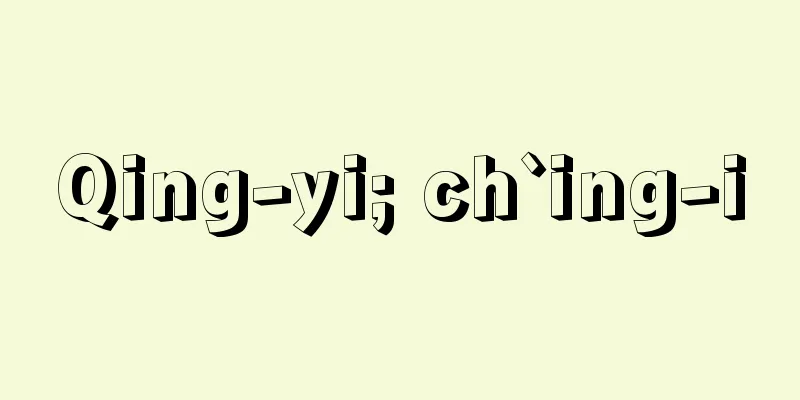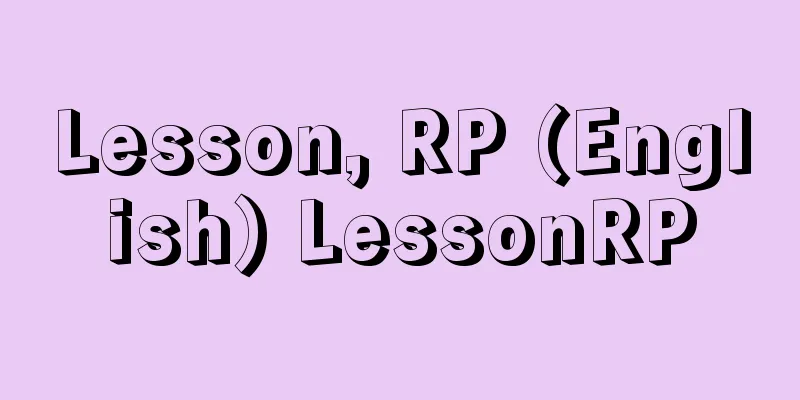Qing-yi; ch`ing-i

|
A character review of Chinese officials of scholar origin from the Later Han, Wei, Jin, and Northern and Southern Dynasties. Committing a seigi was considered to be misconduct as an official or violation of family morals. Under the Nine Ranks of Officials Act, if a scholar committed a seigi, he or she would be the subject of public opinion (township theory) among the scholars, and would be demoted or denied status as an official. Source: Encyclopaedia Britannica Concise Encyclopedia About Encyclopaedia Britannica Concise Encyclopedia Information |
|
中国,後漢,魏晋南北朝にかけての士人出身の官吏に関する人物品評。清議を犯すとは,官人としての不正行為や家族道徳に違反したということで,九品官人法のもとで,士人が清議を犯すと,士人間の輿論 (郷論) にかけられ,官吏としての身分が引下げられたり,否定されたりした。
出典 ブリタニカ国際大百科事典 小項目事典ブリタニカ国際大百科事典 小項目事典について 情報 |
Recommend
Chara zeylanica (English spelling)
…[Mitsuo Chihara]. . . *Some of the terminology e...
Die Gesellschaft für empirische Philosophie
...The main members of this movement were, in add...
Happy longevity
〘 noun 〙 Celebrating longevity. Expressing joy. Co...
Kandocho - Kantocho
…At Zen temples, a document called the Koukatsuch...
Ezohebiichigo - Ezohebiichigo
... F . iinumae Makino grows in clusters in sligh...
Obitsuke - Obitsuke
...The celebration of a 5-year-old boy's wear...
Asatsuki (light green onion) - Asatsuki (English name) Allium schoenoprasum var.foliosum
A perennial herb of the Allium genus in the Liliac...
Khe Sanh (English spelling)
A town in the Annamitan Mountains in central Vietn...
Elastic energy
The elastic energy is the energy stored in an elas...
Kamae (Noh)
…Table 2 shows an example of a unit of gestures, ...
Ganoderma lucidum (mannentake) - Ganoderma lucidum (mannentake)
Basidiomycetes, order Aphyllosteganata, family Pol...
The Five Great Kings
A Myo-o-sect deity consisting of a set of four gr...
Gas vacuum
…The cell sap is mostly water, but it also contai...
Zamba
...After World War II, under the influence of jaz...
Kyakhta (English spelling)
A city in the Republic of Buryatia, in central-eas...









